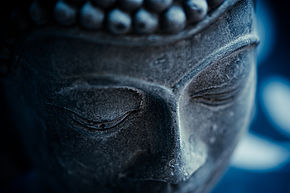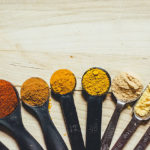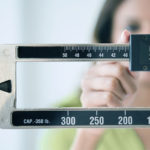
Fact: Although we use needles, they are very slender and fine (about the size of a cat whisker). You may or may not feel an initial prick, sometimes described as a mosquito bite. Any discomfort will either fade on its own or ease up as your acupuncturist adjusts the needles. You should experience a Qi (pronounced “chee”) sensation, often described as heaviness, throbbing or an electrical sensation. That’s your body’s healing energy doing its work.
Myth #2: Acupuncture is ancient folk medicine; no legitimate healthcare professional would recommend it
Fact: Acupuncture is a treatment option that many medical institutions recommend. Even the United States military uses acupuncture. The National Institutes of Health (NIH) funds many clinical research trials on acupuncture. Both the NIH and the World Health Organization (WHO) recognize acupuncture as a valid treatment for a wide range of conditions.
Myth #3: Acupuncture is only useful in treating pain
Fact: It’s true that acupuncture helps relieve joint pain, including knee pain; back pain; headache; stomach pain and menstrual cramps. However, acupuncture is also used to treat nausea/vomiting, chemotherapy side effects, morning sickness, hypertension (high blood pressure), allergies, depression, infertility and other conditions.
Myth #4: Acupuncture’s effects are psychological. It doesn’t really do anything
Fact: Acupuncture and its effects are far from psychological. Studies show that during acupuncture, our brains begin to release chemicals such as endorphins (natural painkillers) Acupuncture also has an anti-inflammatory effect and helps people’s immune system.
Myth #5: Once you start acupuncture, you’ll always need acupuncture
Fact: For most conditions, acupuncturists strive to improve your main problem so you do not have to return for more treatment. For chronic conditions, some people stay on a maintenance schedule, however, such as returning once a month, because acupuncture continues to help.
Myth #6: If you do not see results in one or two treatments, then you’re unlikely to benefit from acupuncture
Fact: The response to acupuncture is always an individual one. Some people respond quickly — within one, two or three treatments. Others need a full course of eight to 10 treatments. Acupuncture’s effects are cumulative, building with each treatment, so the acupuncturist will assess its effects after you complete a full series of treatments. Acupuncturists use a variety of styles and techniques, so if you do not see results with one clinician, seek out another acupuncturist.
Myth #7: Acupuncture has a lot of side effects and you’ll need time off work
Fact: Acupuncture has few to no side effects. After your acupuncture session, you can usually carry on with your day without any restrictions.
Myth #8: Acupuncture may conflict with medication, physical therapy and other ‘mainstream’ conventional medical treatments
Fact: There is no conflict between acupuncture and conventional medicine; they complement one another. Acupuncture works nicely as an adjunct to your conventional treatment plan.












